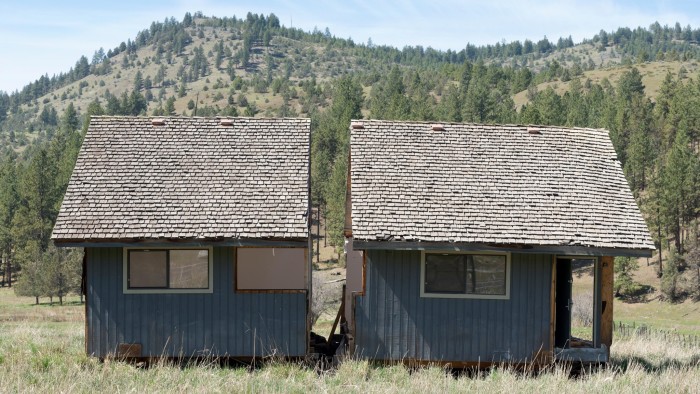Is capital gains tax payable on my house sale?

Roula Khalaf, Editor of the FT, selects her favourite stories in this weekly newsletter.
My question concerns whether capital gains tax would be payable on a house sale. I was divorced in December 2016 but my ex-wife and I have continued living in what was the marital home. We would now like to sell the house and divide the proceedings as part of an amicable agreement. The house was bought in 2000, has always been in both our names and we have been living there since. We own no other property. Given this scenario, would we be liable for CGT?
John Goodchild, partner and head of private wealth at Pemberton Greenish, says the short answer is that there should be no CGT when you and your former wife sell the house.
This is because your scenario appears to be a textbook case for CGT principal private residence relief to apply in full. The relief is available for a property that is an individual’s only or main residence and, absent special factors, where the individual has occupied the property as his or her only or main residence throughout the period of ownership.
Since, as you say, you and your former wife have used the marital home as your primary residence, no part of the capital gain realised on the disposal of the property is chargeable.

It might be helpful if I mentioned some of the special factors that can deny or restrict the element of relief, even though they do not appear to be present in your case.
Married couples “living together” are only permitted to own one residence that qualifies for the relief but on the information you provide there is no evidence of either of you owning or occupying another property that may otherwise qualify as a residence. In addition your divorce will not, on the facts outlined, affect the entitlement of either of you to claim relief.
Sometimes the extent of the property can result in the relief being restricted. Full relief may not be possible where the plot on which the house sits exceeds half a hectare (1.2 acres). If the plot exceeds that, you need to show that the greater area of grounds and/or outbuildings are “required for the reasonable enjoyment of the [property] … as a residence, having regard to the size and character of the dwelling-house”. Nothing you have said suggests that this is an issue in relation to your house.
Sarah Nettleship, solicitor at Thomson Snell & Passmore law firm, says divorce can often lead to unexpected CGT liabilities but because you have both remained living there and are planning to sell the property (rather than one of you moving and transferring half to the other), CGT is unlikely to be an issue.
There are a few exceptions (including the one about plot size outlined by John, above) which may mean relief is unavailable in full when you sell the house. Another exception may be if you have not lived there continuously. Some periods of absence are permitted, such as when you are required to work abroad, but other absences will mean you cannot claim relief for your entire ownership period. This does not seem to be a problem in your case as you have occupied the property throughout.
Finally, if any part of your home has been used exclusively for business purposes you may be exempt from the relief. Any parts of the home used for a business — for example, if you own a shop and live upstairs — will not be eligible for relief.

Had one of you moved out after your separation, it could be a different story. If one spouse moved to a new home and the house was then sold or they transferred their half of the property to the spouse that remained, CGT could arise if the sale/transfer took place more than 18 months after the departing spouse left the house.
It could be possible to treat the property as the departing spouse’s main residence until the date of transfer or the date on which the remaining spouse moves out. However, if they elect for the marital home to be treated in this way, the departing spouse cannot also claim relief for the same period on their new home when they eventually sell it, so this may not be the most attractive option.
Finally, even though you live together, for CGT purposes you do not. This means that if you transfer any other assets between each other (for example, share portfolios or rental properties), you will no longer benefit from the “no gain, no loss” treatment available to spouses and CGT will arise.
The transfer of assets between divorcing spouses has a number of tax consequences and tax advice should always be sought in this scenario.
The opinions in this column are intended for general information purposes only and should not be used as a substitute for professional advice. The Financial Times Ltd and the authors are not responsible for any direct or indirect result arising from any reliance placed on replies, including any loss, and exclude liability to the full extent.
Do you have a financial dilemma that you’d like FT Money’s team of professional experts to look into? Email your problem in confidence to money@ft.com
Our next question
We entered a whole new world with the birth of Rose, our daughter, eight weeks ago. As an accountant I instinctively prioritise a piggy bank and long-term investment, while my husband, a graphic designer, is creating a nursery to stimulate her senses.
With regard to children’s investment there are limited options. We are heading down the route of a junior Isa as we want the investment to be in her name. There are many cash Isa options but as we are investing for 18 years, cash makes no sense. We can only find a handful of stocks and shares products and would appreciate guidance with regard to the long-term horizon, fees, level of interaction and ethical investing.
Comments